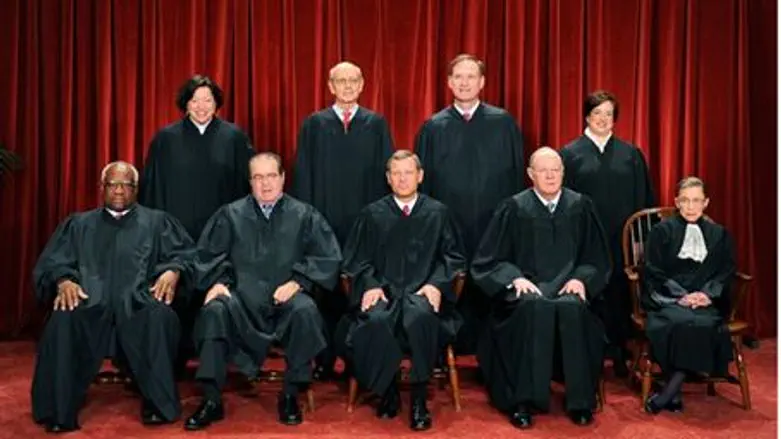
The US Supreme Court begins deliberations today (Wednesday) about whether or not conducting prayers before civic proceedings is a violation of the first Amendment right to separation between Church and State, AFP reports.
The controversy surrounds the small-town judicial system of Greece, NY, where local clergy reportedly are invited to conduct prayer sessions before each monthly city council meeting.
Two locals have protested the practice, claiming that prayer has no place in a political forum and that the ceremonies violate the constitutional separation between Church and State. They are being represented by organizations which advocate against religious coercion in the US.
All of the prayers between 1999-2007 were Christian; since filing the complaint, various religious leaders have opened the meetings, including Wiccans, Jews, and Bahai. However, opponents still claim that the prayers have no place in a public forum.
The 14th amendment of the US Constitution, which was adopted in 1868, declares that the separation between religion and politics applies not only to the national sphere, but also to local administrations. After an appeals court upheld the amendment, defenders brought the case to the Supreme Court, claiming that any religious figure can head the prayer session and that the practice is non-discriminatory.
"It is our hope that the town of Greece will prevail before the US Supreme Court in this case, and a victory for them will be a victory for all Americans of faith and for the constitution itself," said Ken Klukowski, Director of the Center for Religious Liberty at the Family Research Council, to AFP. He hoped that a victory in the case would "significantly strengthen the religious liberty rights of Americans in public life and the public square."
In response, The Secular Coalition for America, which plans to demonstrate outside the court, stated that it is "unconscionable that in a country founded on the separation of religion and government, any citizen would be coerced into prayer while trying to participate in the civic process."
The decision is expected to be made by June 2014 at the latest.